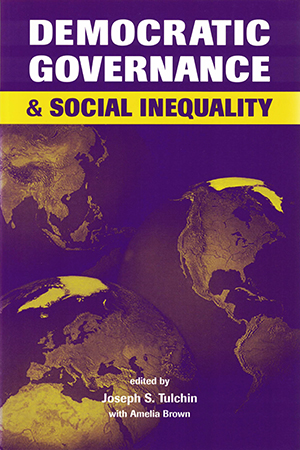
- 2002/205 pages
Democratic Governance and Social Inequality
Paperback: $19.95
ISBN: 978-1-58826-028-4
This controversial book examines the challenges that social inequities present to democratic governance.
The authors argue that issues of poverty and inequality—far from diminishing—are becoming even more important in the present global environment. They consider the effects of globalization on the distribution of income and wealth within state borders, the impact of inequality on the stability and quality of democratic governance, and the future of vulnerable democracies in light of an apparent decline in the ability of federal governments to reduce inequality. Bridging political and economic concerns, the book is an important step toward coming to terms with the crucial socioeconomic dimensions of democracy and democratic transitions.







